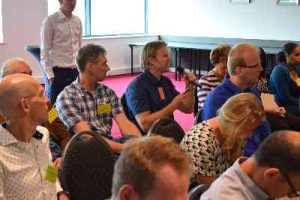Date/Time | |
About
Why the “Design of Experiments (DoE) in Practice” course?
From stricter quality requirements and cost considerations, it is becoming increasingly important to take a structured approach to a research or experiment. A final product usually has to meet many quality requirements, and if that does not succeed immediately, there are many (often dozens of) process parameters with which this can be adjusted. But these process parameters can influence each other and the different quality requirements in many ways, which makes optimization complex. It pays to think carefully about optimization experiments in advance. In this course you will learn how to use statistical methods and software to extract a maximum of information from a minimum of experiments, so that all quality requirements can be met simultaneously in a short period of time. This saves time and costs and reduces the risks of failure.
For whom is this course intended?
You think and work at college (bachelor) or academic level. You work in an (applied) R&D or innovation department as a process, product or quality engineer, where you develop new products and processes, for example. Or you are an engineer who needs to improve ongoing production processes and you need DoE to discover and fix difficult problems in time. Or you are responsible for the validation of equipment, methods or processes, for example in a laboratory environment. Then you can use DoE to perform a validation with much less work.
Program
Program.
The following topics will be covered over four days.
Day 1:
- Independence of experimental errors
- Regression analysis
- Factorial experimental schemes (model, significance, linearity)
Day 2:
- Choosing parameter settings (low/high)
- Fractional factorial testing schemes and roadmap for DoE
- Factorial testing schemes in blocks
Day 3:
- Plackett-Burman Designs and Robustness Designs.
- Proof schemes for more complex models (response surface DoE)
- Determining Design Space
Day 4:
- Follow-up to a DoE: How to proceed?
- Eliminating disturbing factors
- Handling practical cases and questions
Result
Outcome.
Upon completion of this course, you will be able to apply statistical techniques for experiment design. You will be able to analyze the results of your own experiments using statistical software for various types of experimental design. This will help you get the desired results faster and save time and money for your client.
The diploma
Upon successful completion of the course, you will receive a certificate of attendance.
Other info
Time commitment
The course consists of a total of 4 days, with the first 3 days consecutive (Oct. 26, 27 and 28) and a return day approximately 3 weeks later (Nov. 23).
Financial investment
The investment for the course is as follows:
Course fee: €2,060 (excluding 21% VAT).
Subscribe
Clicking on the link below will redirect you to a new window where you can fill out the registration form.
Open registration form




